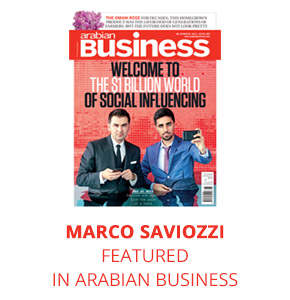As financial brokers, much of what we do is directly concerned with wealth, whether it’s our own or that of our clients.
But at what point does our health come into it?
We work long hours, and because the profession is driven by commission, it’s tempting to make working days even longer. It’s not just the time we spend at our desks – to get ahead of the game we need to keep up-to-date with what’s happening in the markets, not to mention being available 24/7 to respond to clients.
Sooner or later it can take its toll on our health.
Even if we’re prepared to risk our health, there’s another side to the story: it destroys productivity as well. According to Stanford professor John Pencavel, working output at 70 hours per week differs little from output at 56 hours. So what exactly is being gained by working long? Should we instead be thinking of working smart?
Working hours for brokers – it’s not 9 to 5
According to UAE Labour Law ‘the maximum prescribed working hours for an adult employee is eight hours per day’, but it’s no surprise that the reality is quite different. The approach to working hours is hazier among private sector firms, and in our profession, ambition can lead to young brokers pulling all-nighters to get ahead, earn a reputation and build their client base.
It’s important to show drive and understand the reality of being a broker – you’re often at work before your clients get in and you leave after they’ve gone home.
It’s good to be ambitious. It’s important to show drive and understand the reality of being a broker – you’re often at work before your clients get in and you leave after they’ve gone home. But you’re not invincible. According to the University of Chicago, “sleep deficiency is associated with increased risk of obesity, diabetes and cardiovascular disease”. In 2013, Moritz Erhardt, an intern at Bank of America Merrill Lynch, died after working for 72 hours straight. While ‘natural causes’ were recorded for the death, it’s not hard to imagine the toll that a three-day stretch of work, in a stressful environment, might have taken on him.
There’s no getting away from stress
We know that being a financial broker is stressful – the Huffington Post recently put our profession in the top 10 for poor work/life balance. It’s part of the job and we accept this when we enter our line of work.
But knowing about stress isn’t the same thing as knowing how to handle it. This is especially important if you’re just starting out, because you’ve yet to figure out how you will perform over the long term. Learning how much stress you can comfortably cope with is important. If you get into a sports car and floor it, you’ll cover a lot of ground in a short time. But you’ll also run out of fuel very quickly.
Stress can be a good thing – it can focus our attention, help to push us harder and lead to achieving more. The immediate aftermath of a stressful day may simply be a frazzled feeling and the opportunity to joke about it with friends. But in the long term, stress can lead to a range of health problems, both physical and mental.

What’s making us stressed?
Long hours and the need to accurately interpret data for quick decision making are both key sources of stress, but they’ve always been there. What’s different now is that the pace of technology, and competition, is heating up. The US National Institute of Health points to a cocktail of newer developments that may in themselves be contributors to stress. They include increased competition, higher client expectations, and after-hours trading.
Beyond the intrinsic impact of stress on your body and mind, there’s another, darker side that centres on how we may try to counter its effects. In a ‘work hard, play hard’ environment, the demands of the job are often balanced out by letting off steam socially. That’s not to say that you’ll necessarily find yourself developing unhelpful vices, but there’s research to suggest that, taking alcohol as an example, the risk of unhealthy distractions is significant.
In 2015, research showed that workers who put in longer hours are 11% more likely to be heavy drinkers than those working a ‘standard week’. The effects of stress can be compounded by taking to the bottle for relief, or worse, to sleep. According to The Sleep Foundation, alcohol inhibits REM sleep, the most restorative phase of the sleep cycle, which means you’ll wake up feeling groggy, when you’re about to begin another long day.
What can we do to improve our health?
We spend much of our time sitting at screens. While that’s true for many professions, our extended hours mean we may do it for longer periods. It’s not a revolutionary idea to suggest that exercise will help. If the words “I don’t have time for exercise” come to mind then you are not alone. But throwing 100% of your time at your job makes you a martyr, not a performer. More doesn’t necessarily mean better, and longer hours will in turn lead to disengagement. Willis Towers Watson found that among employees experiencing higher stress, over half (57%) reported feeling disengaged. There’s a point at which pushing yourself harder has a negative effect.
But throwing 100% of your time at your job makes you a martyr, not a performer.
Then there’s time management itself. Are you really using your working time effectively? A recent report into mobile phone use shows the average American spends two hours and 51 minutes per day on their mobile. Being on the phone may be part of the job, but honestly, is there a chance that some of that mobile fidgeting isn’t really work?
Physical activity doesn’t have to mean a triathlon – simply keeping moving on-and-off during the day is also very helpful. So even short breaks walking around the office, or the local area, to have your lunch away from your desk can help. It’s also a good way to refocus, while mitigating the effects of sitting down non-stop. Research from Desktime.com found the key differentiator between high performers and everyone else was they’re not afraid to take breaks. You can’t concentrate for as long as you think you can, but getting away for a few minutes can help you to refocus. Concentrating too hard, for too long, can be counterproductive.
Finding healthy distractions
George Soros is 86 years old. Warren Buffett is 78. Both are hugely successful, have amassed huge personal fortunes and know a thing or two about surviving in our industry for a long time. While it’s also unlikely that they undertake any punishing physical activity, they do have interests outside of work. Soros plays poker, a game of skill, patience, risk and opportunity that clearly reflects the skillset we use as brokers every day.

Buffett on the other hand, is keen on playing the ukulele and while it might be challenging to relate that to our job profile, that’s the point. What experts like Soros and Buffett have mastered is the art of healthy distraction. The ability to build time into their schedules to take their brains somewhere else entirely.
Know your job, but know yourself too
There’s nothing wrong with a great work ethic. In fact, in our profession you won’t get very far without it. But you’re not a machine. Muhammad Ali was probably the greatest boxer of all time, but he didn’t throw power punches for 15 rounds. Cristiano Ronaldo is one of the greatest strikers in history, but he doesn’t sprint non-stop for 90 minutes.
Why don’t the greatest athletes in the world give 100% all the time? Because it’s physically and mentally impossible. The longevity of an Ali or a Ronaldo is no coincidence – these are professionals with the ability to temper their brilliance with wisdom – they understand the importance of their wellbeing to surviving the long game.
Being a broker is our livelihood, but it isn’t our life. If we confuse the two, we risk both health and happiness, not to mention the possibility of disliking the profession. So whether your main concern right now is your wealth, your health or your productivity, forging a career that’s both rewarding and long-lasting depends on good time management and knowing your limits.
About the author: Marco Saviozzi, CEO
Marco attained an MBA in Finance from the IEMI, Geneve, before starting his career in corporate sales at Xerox. He would eventually move on to French firm Viel (now Tradition), before being headhunted by prestigious London firm ICAP, where he was brought in as head of the French Franc IRS Desk. He quickly rose to become a part of the management committee as Co-Head of the Euro Desk, and later moved to the New York office to head up the Equity Derivatives team. After 14 years at ICAP, in 2007, he opened Newedge – a Calyon / Societe Generale brokerage arm in Dubai. Two years later he would go on to form GMG as a co-founder with several past colleagues. When he is not facilitating trades on behalf of clients, Marco can be found on the golf course or watching his favourites sports – Formula 1 and horse racing.


